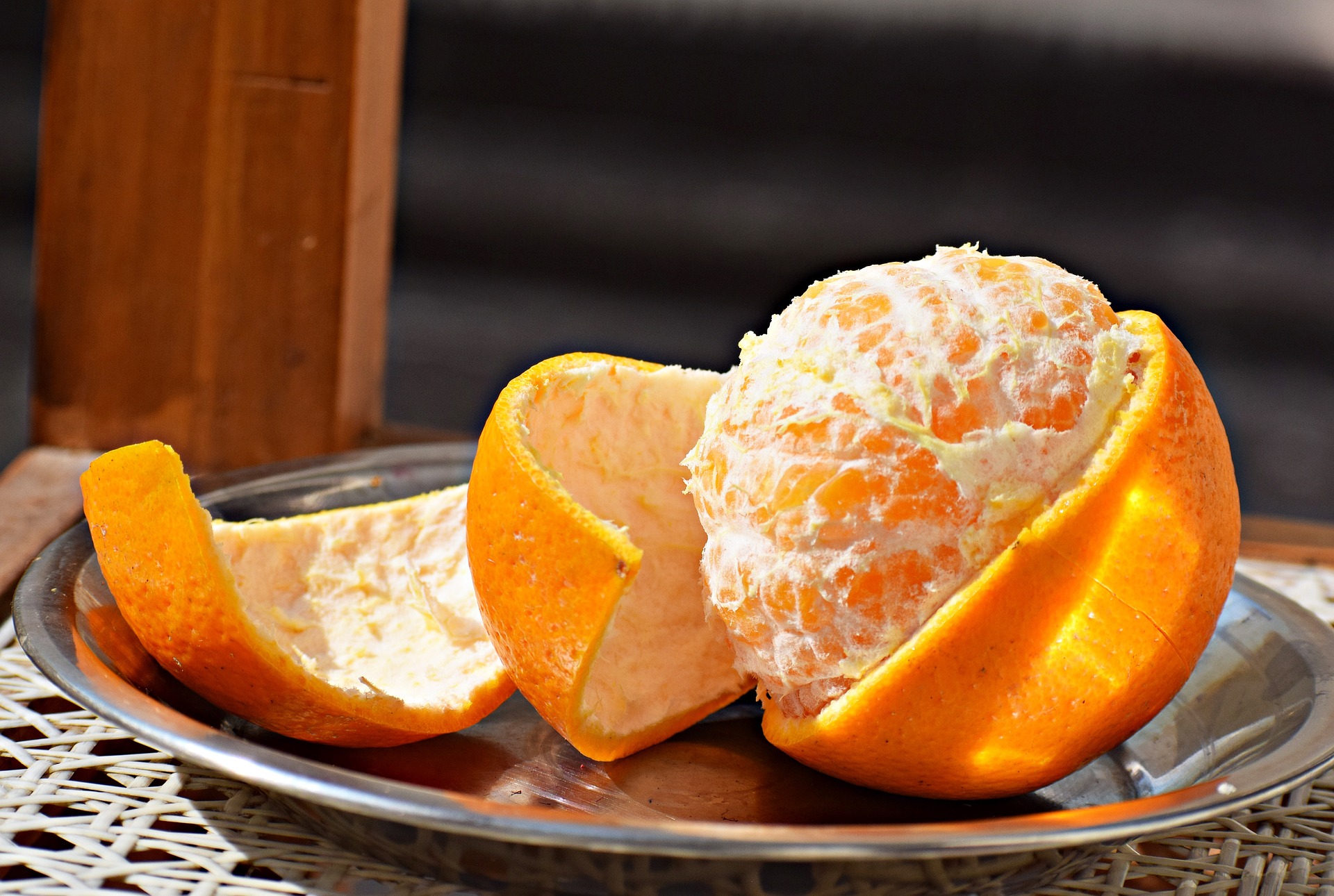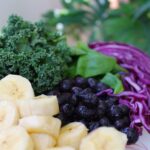Kinnow (Citrus reticulata cv.) hybrid variety of king and willow mandarins (Citrus nobilis Lour x C. deliciosa Tenore) that has gained popularity globally for its exquisite taste and numerous health benefits which is first developed by Howard B. Frost, at the University of California. Kinnow belongs to Rutaceae family of class Magnoliopsida and order Sapindales. Various studies have explored the industrial applications of different parts of the fruit, emphasizing the value addition that can be achieved.
Kinnow peel is a rich source of bioactive compounds that hold immense nutritional and medicinal value. Gallic acid found in Kinnow peel exhibits antiviral, antifungal, antioxidative, and antidiabetic properties . Alcoholic fatty liver disease (AFLD) and Non-alcoholic fatty liver disease or NAFLD is a growing concern globally.In recent years, the spotlight has turned towards natural remedies, and one intriguing contender is the humble kinnow peel. Let’s delve into the potential effects of kinnow peel in reducing these diseases and how this citrus powerhouse might offer a ray of hope.
Understanding Alcoholic Fatty Liver Disease
Alcoholic fatty liver disease occurs when excessive alcohol intake leads to the accumulation of fat in liver cells. This condition can progress to more severe forms, posing a threat to liver function and overall health. Amidst traditional medical interventions, exploring natural compounds like those found in kinnow peel becomes an avenue worth exploring.
Understanding Non Alcoholic Fatty Liver Disease
Non-alcoholic fatty liver disease or NAFLD has become the most common liver disease worldwide. NAFLD is a metabolic disease that manifests as a build up of lipids in liver cells but without alcohol abuse or other indeterminate liver damage. If detected and managed at an early stage, it’s possible to stop NAFLD getting worse and reduce the amount of fat in your liver.
The Nutrient-Rich Kinnow Peel
Packed with Antioxidants
Kinnow, a variety of mandarin orange, is renowned for its juicy, tangy flesh. However, the peel often goes unnoticed. Surprisingly, it houses a wealth of antioxidants, including flavonoids and polyphenols, known for their anti-inflammatory and liver-protective properties. Hesperidin, a derivative of flavonoids in citrus fruits, acts as an antioxidant, metal chelator, and blood pressure regulator. Naringin, another flavonoid found in citrus peel, offers antioxidant properties, regulates protein secretion.
Rich in Fiber
Fiber is a vital component in promoting digestive health and regulating cholesterol levels. Kinnow peel boasts a notable fiber content, potentially aiding in the reduction of cholesterol and supporting liver health. It contains compounds like catechin, quercetin, kaempferol, and limonin, each offering distinct health benefits, including antioxidant effects, blood pressure regulation, anti-inflammatory properties, and potential anticancer.
Essential Vitamins
Vitamins like C and A are abundant in kinnow peel. These vitamins play a crucial role in immune function and overall well-being, offering a natural boost to the body’s defenses.
Potential Mechanisms of Kinnow Peel in Fatty Liver Reduction
Anti-Inflammatory Properties
Inflammation is a key player in the progression of fatty liver disease. The antioxidants in kinnow peel may help combat inflammation, potentially slowing down the advancement of AFLD. Compounds like ferulic acid, p-coumaric acid, and caffeic acid possess antimicrobial, antioxidant, and anti-inflammatory properties, promoting overall health.. These bioactive compounds hold promise in managing cardiovascular health, diabetes, inflammation, and cancer prevention.
Liver Detoxification Support
.Certain compounds found in kinnow peel are believed to support the liver’s natural detoxification processes. Chlorogenic acid contributes to regulating blood pressure, fat metabolism, and enhancing endothelial functionality. Scientific studies provides insight into changes in the composition and environment of the gut microbiota and finds that citrus peel powder (CPP) supplementation can reshape the composition of the disordered microbiota. By enhancing the liver’s ability to process toxins, kinnow peel might contribute to the reduction of fat accumulation.
Cholesterol Regulation
The fiber content in kinnow peel may aid in regulating cholesterol levels, positively impacting cardiovascular health and indirectly influencing liver health. Research data published in Asian Pacific Journal of Tropical Biomedicine concludes that oral administration of citrus peel extract (600 mg/kg) can reduce the plasma triglycerides in hypercholestrolemic subjects as compared to control group. It was accredited to the ability of citrus flavonoids to prevent oleic acid conjugation in triglycerides thus overall decrease plasma cholesterol level.
Incorporating Kinnow Peel into Lifestyle
Culinary Uses
Adding kinnow peel to your culinary repertoire is a simple yet effective way to harness its potential benefits. Grate the peel into salads, use it as a zest in recipes, or infuse it into teas for a refreshing twist. The incorporation of Kinnow peel powder into bread not only enhances the bread’s functional attributes but also underscores its significance as a functional food ingredient, contributing to improved nutrition.
Homemade Remedies
Explore homemade remedies by incorporating kinnow peel into juices or smoothies. Blending the peel with other liver-friendly ingredients like ginger and turmeric may create a potent elixir for liver health.
Considerations and Precautions
While kinnow peel shows promise, it’s essential to approach its consumption with awareness. Consultation with healthcare professionals is crucial, especially for individuals with existing liver conditions or those on medications.
Conclusion: Nurturing Liver Health Naturally
In the realm of natural remedies for alcoholic fatty liver reduction, kinnow peel emerges as a potential ally. Rich in antioxidants, fiber, and essential vitamins, it offers a holistic approach to liver health. As research progresses, integrating kinnow peel into a balanced lifestyle may become a simple yet effective strategy in the journey towards reducing the impact of alcoholic and non alcoholic fatty liver.
Embrace the potential of kinnow peel as a natural companion on the path to liver well-being. Always consult with healthcare professionals for personalized advice tailored to individual health conditions.
References:
https://www.sciencedirect.com/science/article/pii/S2221169117309784
https://www.ncbi.nlm.nih.gov/pmc/articles/PMC8701357/
https://www.thepharmajournal.com/archives/2023/vol12issue9S/PartX/S-12-9-66-296.pdf
https://pubmed.ncbi.nlm.nih.gov/28521034/











